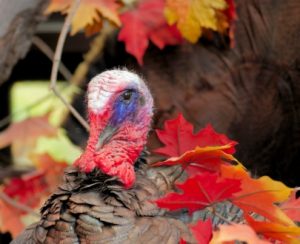Thanksgiving Eating Survival Tips
 Turkey day is right around the corner – a time that can trigger emotional turmoil for many people battling eating disorders.
Turkey day is right around the corner – a time that can trigger emotional turmoil for many people battling eating disorders.
Moreover, Thanksgiving tends to mark the beginning of the “overindulging” season, when overdoing it is seen as normal in light of holiday festivities, parties and food-centered gatherings.
In a recent Huffington Post article, author of “Body, Mind, and Mouth… Life’s Eating Connection” Margaret Marshall shares a few holiday eating survival tips, which can be helpful as you navigate the remaining weeks of 2014.
Create distance.
Marshall suggests creating some actual physical space between you and the foods you find tempting. Whether it’s at the dinner table or near the appetizer bar, decreasing your proximity to food can actually keep you from overeating.
“If the food is not removed, and is too challenging, remove yourself. Get up and get some air,” Marshall said.
Rate your foods, pick your favorites.
Size up the food situation by first rating all foods at your disposal on a scale of 1-10, with 10 being your favorite. Allow yourself to eat foods you rate at an 8, 9 or 10, and steer clear of the rest, Marshall suggested.
Don’t “compensate.”
“Never cut back on regular eating the day after a holiday to compensate,” she said.
This behavior will tend to lead to overeating or could trigger a relapse into other disordered eating behaviors, Marshall said.
Pay attention to your breath.
Slower breathing or sighing may be a sign that you’re full – and it’s time to stop eating. Listen to and monitor your breath periodically to check in with yourself.
Aim to see your plate.
A useful trick to prevent overeating is to leave spaces between food so you can see your plate. This keeps you from taking larger-than-necessary serving sizes.
Get physical.
Exercise can often help you reconnect with your body and zero in on real vs. emotional hunger cues. Make it a point to do something physically active before the big meal – or afterwards, too.
“Plan your family events around physical activities,” Marshall suggested.
Source: Huffington Post
 Eating Disorder Self Test. Take the EAT-26 self test to see if you might have eating disorder symptoms that might require professional evaluation. All answers are confidential.
Eating Disorder Self Test. Take the EAT-26 self test to see if you might have eating disorder symptoms that might require professional evaluation. All answers are confidential.